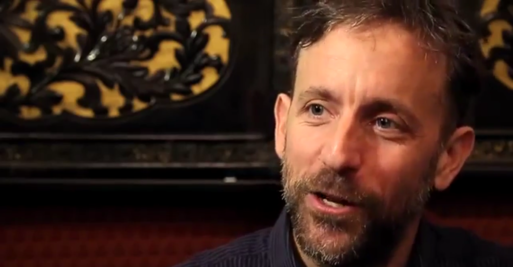When billionaire investor Richard Rainwater learned he had an incurable brain disease, he dealt with the news in the same way he approached much of his life. Already a philanthropist, he quickly directed his Rainwater Charitable Foundation to fund a new nonprofit, naming it the Tau Consortium after the tau proteins that contributed to his illness and are implicated in other neurodegenerative disorders such as Alzheimer’s disease. The goal: Find a cure for progressive supranuclear palsy, or PSP, an extremely rare disease that affects about three to six people out of 100,000 across the globe — and the disease that, in 2015, took Rainwater’s life.

Richard Rainwater died from progressive supranuclear palsy in 2015
Credit: Steve Castillo/ Stanford School of Business
A Charmed Life?
At first glance, Richard Rainwater appears to have led a charmed life. The son of a wholesale grocer of Lebanese descent, he grew up in Fort Worth, Texas, and attended the University of Texas at Austin, graduating with degree in mathematics. He went on to earn his MBA from Stanford University.
After graduation, Rainwater landed a job as an investment broker at Goldman Sachs. Then, at the age of 25, he teamed up with a fellow Stanford alumnus Sid Bass to manage and diversify the Bass family’s portfolio. When the initial effort didn’t go well (earning a net loss of about $5 million) Rainwater sought the advice of seasoned investors like Warren Buffet and Charles Allen Jr. Following their lead and his own prodigious instincts, he carefully honed an investment style that Forbes described as “analytically rigorous but opportunistic and Texas-sized in its audacity.”
And it worked. Within a short time, Rainwater grew the Bass family fortune to $5 billion, while earning a reported $100 million for himself. He used that money to create an investment portfolio that eventually made him one of the richest men in the world.
A Devastating Diagnosis
But as we all know, money can’t buy happiness, and it can’t buy health. In 2009, after searching for answers to his increasing disability for more than six months, Richard Rainwater was diagnosed with PSP — a progressive neurological disease characterized by an accumulation of tau proteins in the brain, which leads to problems with mobility, vision, cognition and speech. By 2011, the billionaire was unable to manage his own affairs and was declared incompetent by the courts. Nevertheless, shortly before his death in 2015, Rainwater instructed his son, Todd Rainwater, now the the chair of the board of trustees at the Rainwater Charitable Foundation, to set up a series of prizes to incentivize research into neurodegenerative diseases such as PSP.

Todd Rainwater speaking about the Tau Consortium in 2015
Credit: startelegram.com
“Even with all of his wealth and all of ability to reach to the farthest parts of the world for the smartest people who are dealing in this, it didn’t help him,” said Dr. Richard Carmona, the former U.S. Surgeon General who will chair the program. “But he never forgot that there would be other people following behind him,” Carmona added in a statement to Forbes.
Millions in Awards
The prizes designated by the Rainwater Foundation are far from insignificant. The largest, known as the Rainwater Breakthrough Prize, will award amounts of $2 million, $4 million or $10 million to researchers who are working on FDA-approved treatments for PSP. The second, the Rainwater Milestone Prize for Advances in Tauopathy Research, is a $2 million prize that will be awarded to a researcher or group of researchers whose work addresses “critical gaps in technology” and knowledge of tau-related diseases. The last is an annual award of $250,000 to researchers whose work makes a “significant contribution” to understanding tau-related brain disease.
The foundation has already given over $100 million to various researchers to fund eight early stage clinical trials and several studies that have yet to reach the clinical trial stage.
Nevertheless, there is a long, long way to go. Research into tau-related neurodegenerative diseases such as Alzheimer’s has been slow to produce meaningful results, and many promising drugs have yielded poor outcomes in clinical trials. But that’s exactly why programs like the Tau Consortium are so important, says Dr. Howard Fillit, the executive director and chief science officer of the Alzheimer’s Drug Discovery Foundation. Despite some interest from the pharmaceutical industry, the cost of developing new therapies — especially for rare diseases such as PSP — are not only astronomical but also unlikely to be recouped. So “you need philanthropy to move things forward in a disease like this,” Fillet explains.
During this season of giving, it’s heartwarming to know that generosity like this exists.

 Richard Rainwater Leaves a Legacy of Hope
Richard Rainwater Leaves a Legacy of Hope


 National Donate Life Month Reminds Us To Give
National Donate Life Month Reminds Us To Give
 How Dare You Die Now!
How Dare You Die Now!















